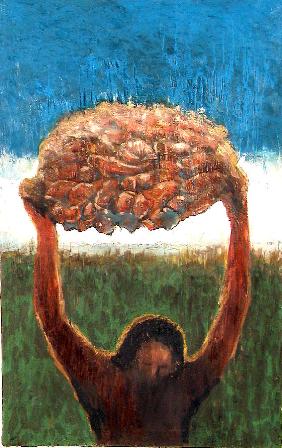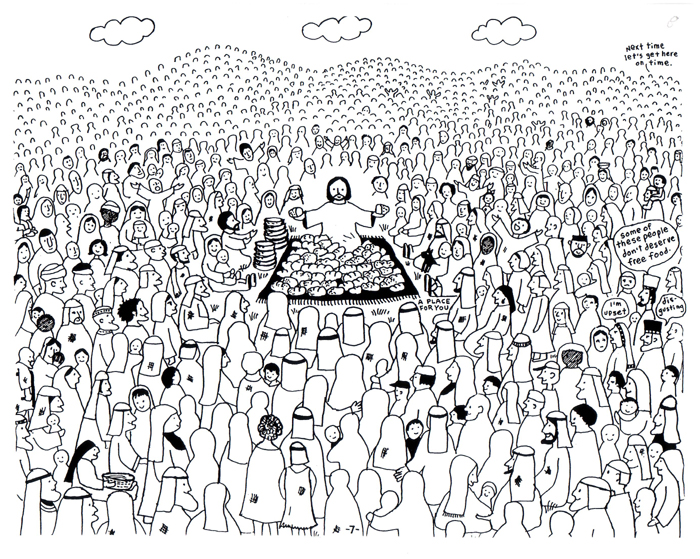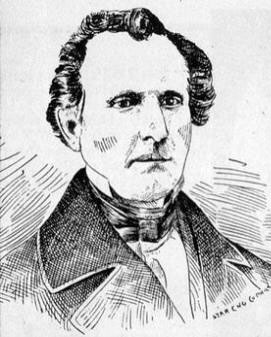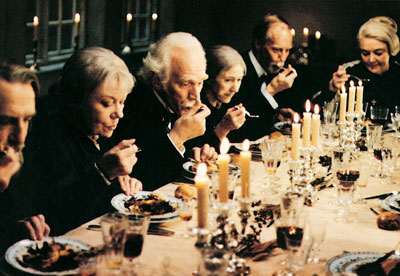Tenth Sunday After Pentecost July 28, 11am
St. Peter's Episcopal Church, Port Royal, VA

We are a small Episcopal Church on the banks of the Rappahannock in Port Royal, Virginia. We acknowledge that we gather on the traditional land of the first people of Port Royal, the Nandtaughtacund, and we respect and honor with gratitude the land itself, the legacy of the ancestors, and the life of the Rappahannock Tribe. Our mission statement is to do God’s Will in all that we do.
Tenth Sunday After Pentecost July 28, 11am
 Tenth Sunday after Pentecost, July 28
Tenth Sunday after Pentecost, July 28
“The Chosen” portrays the Feeding of the 5,000
Voices – Feeding the 5,000
Feeding of the 5,000 and the Graham Cracker
Physics behind Feeding of the 5,000
Food Facts
Food – Handling Waste
Feeding School children – Virginia Sunbucks
Another Way to Feed the 5,000 – in a Chevy!
Another Feeding – Babette’s Feast
Daniel Bonnell’s painting of the Feeding of the 5,000
Special
Chancellor’s Village
Sacred Ground
Season of Creation
Episcopal Church Men
Newsletters
Episcopal Church Women
Jamaica
Performance
Village Harvest
Education

Benefits – Every child who attends Dressing Days will get a new outfit — shirt, pants, underwear and socks — as well as toiletries and personal hygiene items, a backpack with school supplies and their pick of “gently used” coats, hoodies and shoes
When – 9 a.m. to 3 p.m. on Friday and Saturday, July 26-27, at The Church of Jesus Christ of Latter–day Saints, 1710 Bragg Road in Fredericksburg.
Coverage – City of Fredericksburg and the counties of Caroline, King George, Spotsylvania, and Stafford.
ID required- On the day of event Adults must bring proof of residence such as a driver’s license or a letter from social services. Head Start students need proof of acceptance into the program.
Preregistation required by July 13. All families who plan to attend must pre-register by July 13. They can do so online at interfaithcommunitycouncil.org/home. In-person registration will be held from 10 a.m. to 1 p.m. on Saturday, July 13, at The Church of Jesus Christ of Latter–day Saints.
Signup! – 200 volunteers needed for setup and working the event
1. Setup July 25
2. Work the event – July 26-27

The Philadelphia Eleven were the first eleven women to be ordained as priests in the Episcopal Church on July 29, 1974, two years before the General Convention affirmed and explicitly authorized the ordination of women to the priesthood. A film was produced about their ascension to the priesthood for the 50th anniversary in 2024.
The 1974 ordination was seen as an act of civil disobedience and was highly controversial at the time.

The 11 women ordained in Philadelphia were the Revs. Merrill Bittner, Alla Renée Bozarth, Alison Cheek, Emily Hewitt, Carter Heyward, Suzanne Hiatt, Marie Moorefield Fleischer, Jeanette Piccard, Betty Bone Schiess, Katrina Swanson, and Nancy Wittig. From the Philadelphia Inquirer “While all were previously deacons, the women came from all over the country and from many different backgrounds, ages, walks of life, and political worldviews.”
Links
1. The Philadelphia Eleven: Courage and Change . Three minute Trailer
2. Film conversation. Filmmaker Margo Guernsey, and the Rev. Nancy Wittig (one of the eleven women ordained in Philadelphia) and others for the first public conversation about the film.
3. Watch the film online
Jul 26, 12:00 PM EDT – Jul 30, 12:00 PM. $11
4. Timeline of women’s ordination
Several dioceses are promoting screenings of “The Philadelphia Eleven” documentary to coincide with the anniversary, and special worship services are planned.
In the Diocese of Pennsylvania, Philadelphia Episcopal Cathedral has committed to a yearlong celebration of women in the church, starting July 28 with its Holy Eucharist. Heyward, as one of the Philadelphia Eleven, will preach. A screening of the documentary will follow.
The 81st General Convention, at its meeting last month in Louisville, Kentucky, also passed several resolutions recognizing the Philadelphia Eleven and the 50th anniversary of their ordination. Resolution D055 invites commemorations over the next three years, marking an anniversary triennium.
I. Theme – Providing for each other out of our abundance

"Feeding of the 5,000" – Daniel Bonnell
The lectionary readings are here or individually:
Old Testament – 2 Kings 4:42-44
Psalm – Psalm 145:10-19 Page 802, BCP
Epistle –Ephesians 3:14-21
Gospel – John 6:1-21
How do we provide out of our abundance ? What is hunger ? In this week’s lectionary, multiplication of food given to Elisha demonstrates God’s power to provide abundantly in the Old Testament. Paul exhorts the Ephesians to use their spiritual gifts to build up the Body of Christ. Jesus multiplies five loaves and two fish to feed the hungry crowd. The feeding of the 5,000 is the only miracle of Jesus’ ministry recorded in all four gospels. As so often emphasized in John, Jesus takes the initiative, even before the people arrive.
Hunger is multidimensional. People are hungry not only for bread but also for dignity, meaning, and happiness. Thus, we might ask the same question Jesus did: “Where are we to buy bread for these people to eat?”
It’s a tricky question, as John implies with his parenthetical comment. The things which most satisfy our deepest hungers can’t be purchased. Still on the literal plane, Philip despairs: no amount of money could assuage the vast crowd’s hunger. (While they may well be physically hungry, remember that they followed him initially because of his compassion toward the sick.) Jesus’ silence directs us to look toward our own resources.
Faith is what helps us to understand the incomprehensible. Faith is what holds us to the path of God, the way of Christ. We are faced with temptations every day to live for ourselves, to satisfy our own greed and desires, and we forget the needs of others and God’s desire to live for others. In living for others, we find that we have life. In living for Christ, we find that we have lived for others. In thinking of the needs of others, we are reminded that we can be overwhelmed, as Elisha’s servant and Jesus’ disciples felt, or we can have faith, as Elisha and Jesus did, that the needs will be met when we serve and give out of what we have. It is not easy, but it is what we are called to do—and God always provides enough. We may not be able to solve the world’s hunger problems, but we can do our part to help those around us—and we may be surprised at what God can do with the little we have.
The child’s lunch box and the mother who probably packed it are a delightful reminder that “those who would be a blessing for others must bring what they possess to Jesus.” Without a scoff, a snicker or a doubt, Jesus takes the bread and fish into his hands with all confidence. Ignoring Andrew’s concern about scarcity, he provides an abundance. His action reassures those of us who deem our efforts too meager or skimpy to ever count as ministry, or to have any significant effect within God’s design. Instead we can count it, as did St. Ignatius of Loyola, “a toweringly wonderful thing that you might call me to follow you and stand with you.”
The miracle adds a new dimension to the picture of God given in Psalm 145. There, the people look hopefully to God as the source of their food. The opening of God’s hand satisfies their desires. In light of John’s gospel, we enter more directly into that process. No longer does God stand on one side of an abyss and we on the other. Now, Jesus takes our barley loaves into his hands and blesses them. In a co-creative act, we bring the food, share it with Jesus and each other, then gather the left-overs.
Those who are, as Ephesians calls us, one in body and spirit, cannot blame God for world hunger, neglected children and all our other social ills. For God has called us to partnership, graced our efforts, and made us abundant blessings for each other.
Click here to view in a new window.

1. Church of Scotland – The Most effective leader
The most effective leader is not necessarily the one who is most qualified on paper, the one expected to step up due to experience, but rather the one with the essential qualities, the one who steps out in faith, the one who expects God to act and doesn’t rely on their own expectations.
The world would see the young boy as the least of them, yet he was one Jesus chose. Age or experience is no barrier to Christ’s lesson for us all to offer what we have and see what Jesus will do, in abundance. Jesus could have performed this miracle and fed them without the boy’s offering, without asking the disciples to solve the problem of how to feed them, without having so much left over. But as with most of Jesus’ miracles and teachings, He worked through people, teaching valuable lessons about living a life of faith for God, with God. All through Jesus’ earthly life He stayed firmly rooted in His Heavenly Father and has taught us to do the same
An estimated 12,000 men, women and children from 36 countries and all 50 states have journeyed to Midlothian, Texas, to be extras over several days in “The Chosen” as the faith-based series films scenes of Jesus Christ feeding the 5,000, according to a news release (2022).
“The majority of the people here have made their own costumes. They’ve come at their own expense to be here,” Derral Eves, CEO and executive producer of “The Chosen” told kltv.com. “It’s really great to see the diversity of costumes and the diversity of people, and it’s just a blessing to see all the support.”

Additional links”
2. Behind the scenes from YouTube
Here is how is turned out in the 10 minute scene:
The Visual Commentary on Scripture featires 3 paintings that depict the scripture in three periods -early 1500 1671, and 1796. From VCS (Visual Commentary on Scripture). The link to the paintings and then the discussion.
The Feeding of the Five Thousand can be found in all four canonical Gospels (Matthew 14:13–21; Mark 6:32–44; Luke 9:10–17; John 6:1–15), and the Feeding of the Four Thousand in two (Mark 8:1–10; Matthew 15:29–39). The miracle emphasizes Christ’s caring concern and compassion, but also his hospitality and his generosity as a host.
In all three paintings in this exhibition, the central motif is Christ’s gesture of blessing and the baskets in which food will be distributed and leftovers collected. Bartolomé Esteban Murillo follows John’s version of the miracle, while Lambert Lombard’s interpretation is a more complex blending of narratives, and Francisco de Goya’s sources are less clear. Their approaches to the representation of the crowds are also different. Traditionally, Jesus’s followers are depicted either as a gathering of individuals whose diversity provides the painter with an opportunity to display his originality and skills, or as an undefined multitude.
Artists like Lombard suggest the breadth and universality of God’s message by showing its recipients as individuals of varying ages, genders, status, and ethnicities. In Murillo’s and Goya’s works, lack of definition turns these individuals into a mass, which evinces the magnitude of Christ’s following and the extent of his miraculous powers. Both Lombard and Murillo divide the crowd into small groups: Luke refers to ‘groups of about fifty each’ (9:14–15), while in the Gospel of Mark ‘they sat down in groups, by hundreds and by fifties’ (6:40). The wide sweep of Murillo’s landscape is populated by a large, expectant congregation, which in Goya’s interpretation becomes a barely sketched crowd agitated by a threatening, simmering sense of unrest.
Lambert Lombard – “The Miracle of the Loaves and Fishes”. First half of 16th century.

Bartolome Estaban Murillo – The Multiplication of the Loaves and Fishes”. 1671

Francisco de Goya – The Multiplication of the Loaves and Fishes. 1795–96


"This is an important divine moment here that perhaps we miss. The scripture says that Jesus took the loaves, gave thanks, and distributed the loaves and the fishes. All eyes are on Him as the crowd is instructed to sit down in the grass. He then gave thanks. In this painting all the focus is upon Jesus, the viewer looks up as if he or she were one of the crowd. Jesus raises a basket with two small fish in it to the sky. He gives thanks and before he finishes speaking the basket is filled to overflowing. Jesus is called the bread of life. We see Him performing many miracles that have symbolic meanings to those — that have eyes to see. He is victory over death. We see Him raising the dead in more than one instance. He is the water of life, as he tells the woman at the well. He is the Prophet who knew of her five husbands. Look closer and you will see Jesus not just raising a basket of bread to the sky but you will see him upon the cross. The band of white sky forms a perpendicular bar with his arms and hands, which are pierced."

In the mid-1800s there was a group of people in America known as the Millerites–a Christian sect firmly convinced that Jesus would return sometime late in the year 1843. He didn’t, setting off what was called "the Great Disappointment."
At least some of these folks, however, made the best of the situation by declaring that as a matter of fact Jesus had returned but that it had turned out to be an invisible, spiritual advent. Believing themselves to be living in an already-present millennial kingdom, these Adventists decided that as part of this new identity they should invent alternative foods as a sign of their not being fully in this world.
One preacher named Sylvester Graham invented a new kind of cracker for his congregation to eat. Sylvester Graham (1794-1851) believed physical lust was harmful to the body and caused such dire maladies in the sexually overheated as pulmonary consumption, spinal diseases, epilepsy, and insanity, as well as such lesser ailments as headaches and indigestion. Graham believed a strict vegetarian diet would aid in suppressing carnal urges; to this end, he advocated a regimen devoid of meat and rich in fiber as a way of combating rampant desire.
His famed "Graham bread" was fashioned from the coarsely ground wheat flour he espoused and which came to bear his name. Convinced that eating meat and fat leads to sinful sexual excess, the good reverend urged total vegetarianism. He also warned that mustard and ketchup cause insanity, urged followers to drink only water, and recommended sleeping with one’s windows open regardless of the weather. More reasonably, he touted the merits of a high-fiber diet and promoted the use of homemade unsifted wheat flour instead of refined white flour.
Some sources assert Graham himself invented the snack in 1829; others claim the graham cracker did not come into being until 1882, 31 years after Graham’s death. Many bakers tried to market the crackers, but it wasn’t until 1898 that the National Biscuit Company (now Nabisco) made any real inroads into the market with their Nabisco Graham Crackers product. Nabisco achieved even greater success with their Honey Maid line, introduced in 1925, which boosted the original graham flavor through the addition of honey.
Today’s graham crackers are made with bleached white flour, a deviation that would have set Sylvester Graham to spinning in his grave — he regarded refined flour as one of the world’s great dietary evils.

From Ft. Worth City Magazine
"Fort Worth has an unusual new entrant in the food truck scene: Arlington Heights United Methodist Church.
"The West Side church on Sunday officially launched Five & Two – a take on Jesus’ feeding of the multitude with five loaves and two fishes – in a refurbished 1996 Chevy plumbing truck.
"’It’s a full commercial kitchen on wheels,’ Allen Lutes, associate pastor and director of the church’s new food truck ministry, said after a dedication ceremony with hot dogs and chips.
"The church sees the food truck as a way to take its ministry to people, rather than rely on them to come to the church. “How much more meaningful if we meet them where they are?” Lutes said during a Sunday sermon.
"Beginning June 18, and on the third Thursday of each month, Five & Two will begin serving dinner to the 30 homeless veterans who live at the Presbyterian Night Shelter’s Patriot House off of East Lancaster Avenue.
"In July, the truck will be at the Night Shelter’s women and children’s unit once a month. ‘This is going to be an opportunity to do more,’ to serve as mentors and work with children, Lutes said."
Those of you who are scientific minded probably get tired reading all these words. What about numbers ? Quick now, using Einstein’s mass/energy conversion equation how much energy did Jesus have to muster to feed the 5,000 ?
Christian Gaffney answers that for you


Feeding the 5,000 is a program, part of the European organization FeedBack that is tackling hunger in a specific way – using food that would normally be wasted. They work to glean crops from farms that would be wasted also but host public events to bring awareness to this issue. They explain it this way "At each event, we serve up a delicious communal feast for 5000 people made entirely out of food that would otherwise have been wasted, bringing together a coalition of organizations that offer the solutions to food waste, raising the issue up the political agenda and inspiring new local initiatives against food waste."
An example is an event that took place in Vancouver, Canada on May 27, 2015.
It was grassroots “lunch and learn” on a grand scale. Everything on the menu came from industry donors. Those attending got a tasty free 3 course lunch, an appreciation of food waste in the region, connections with those already taking action to reduce waste, as well as ideas for reducing food waste in their own lives. Here is a video.
Summary – French War refugee Babette works for 2 sisters & their ascetic sect. When she cooks a feast they reluctantly eat but soon the grace of the meal transforms all, including a former suitor of one of the sisters.

Babette’s Feast is a high regarded Danish Academy Award winning movie from 1987.
The setting of the film is a barren, windswept coastal village of Denmark in the 19th century. The village is populated by a very conservative and pious community of Protestant believers. It is led by two elderly sisters who struggle to maintain the faithfulness and the spirit of the community, which is aging and growing quarrelsome. When Babette, a political refugee from Paris, turns up in their village, the sisters charitably take her in and make her their housekeeper. They ask Babette to cook their very simple fare, for extravagance of any kind is suspect, and enjoyment of worldly pleasures (including lavish eating and drinking) is sinful.

1 What is it? $120 grocery benefit for each eligible school-aged child this summer. Program active as July 1 with benefits to be distributed in August on a rolling basis. Benefits will be issued either on your family’s SNAP EBT card or a pre-loaded Virginia Summer EBT card that looks just like a debit or credit card and can be used to purchase groceries.
Automatic enrollment
Enrollment by Application
2. You can use SUN Bucks to pay
You cannot use SUN Bucks to purchase:
3. Where buy ? Examples – Many grocery stores, farmers’ markets, convenience stores, and online retailers accept SUN Bucks. Often, these are the same places that accept SNAP and WIC. Use the SNAP retail locator to find stores near you.
4. More information:
A. Main site
B. FAQs
C. Apply or opt out
D. Eligibility
E. Resources

The first crepes myrtle was brought to Charleston by botanist to Louis XVI, André Michaux in 1786. Originally from China and exported to England, it did not bloom since the clammy British climate wasn’t hot enough. But the south was!
Southern Living writes “Audacious spikes of pink, purple, white, and red flowers crown its sculptural branches for months in summer. In fall, leaves turn a brilliant red or orange, and its peeling bark brings winter interest. Crepe myrtles are found in many shapes and sizes, but their arching branches make them a mainstay for framing many a courtyard. The tree loves heat and humidity, tolerates drought, and grows quickly. Unlike the azalea, camellia, and gardenia, which pine for acid soil, crepe myrtle flourishes just about everywhere. No wonder it ranks as the South’s most popular (and coveted) ornamental tree.”

St. Josemaria Institute
We celebrate James the Apostle on July 25. With his brother, John, the Gospels (Matthew 4, 21-22; Mark 1, 19-20; Luke 5, 10-11) record that they were fishermen, the sons of Zebedee, partners with Simon Peter, and called by Jesus from mending their nets beside the sea of Galilee at the beginning of his ministry
Jesus nicknamed them ‘the sons of thunder’ – perhaps justified by the story (Luke 9, 51-56) that they once wished to call down fire from heaven to destroy a village which had refused them hospitality.
They made it to key events in Jesus life – the Transfiguration, Gethsemene and at various healings and miracles – Peter’s mother-in-law and raising of Jairus’s daughter. Obviously, James was of Jesus closest followers.
He is known as James the Great to distinguish him from James the Less, or James the brother of the Lord.
About AD 42, shortly before Passover (Acts 12), James was beheaded by order of King Herod Agrippa I, grandson of Herod the Great (who tried to kill the infant Jesus–Matthew 2). James was the first of the Twelve to suffer martyrdom, and the only one of the Twelve whose death is recorded in the New Testament.
Tradition is he was a missionary to Spain in his life and, at his death, was buried at Compostela, a site of pilgrimage in the Middle Ages.
Relics of the saints were believed to possess great power. Spain needed it in the 8th century. Jerusalem fell to the armies of Islam in 636 A.D., and less than a century later, in 711, Spain was also invaded and conquered. Islam rapidly reached northern Spain, and sent raiding parties into France. In northwest Spain, however, a small Christian kingdom, including Asturias and present-day Galicia, emerged in the 8th century, and at this time James’ tomb was discovered near Finisterre. James was the most senior member of the intercessionary hierarchy whose relics remained undiscovered. The discovery of his tomb helped to bolster the resistance.
In the 12th Century Santiago came to rank with Rome and Jerusalem as one of the great destinations of medieval pilgrimage. The first cathedral was built over the site of James tomb, and Benedictine houses were established. The cathedral where he is buried was depicted in the film, The Way, at the end of the “Way of St. James”, a pilgrim’s path across Spain.

The relics of St James are housed in a silver casket below the high altar, above which his statue presides over the cathedral. On the feast of St James on July 25, and other high days and holy days, a giant censer, the Botafumeiro, is swung on ropes by red-coated attendants in a great arc from floor to vaults, emitting clouds of incense over delighted crowds. It’s considered a symbol of both the cathedral and the city.
Here is the scene from The Way that depicts the pilgrims reaching Santiago and venturing to the cathedral with the swinging of the censer or incense burner. This has never been filmed before and the production crew had to get special permission to film it. They were allowed only 1 hour!
The “Way” is actually many paths across France and Northern Spain that has been followed by pilgrims for 800 years. In recent decades it has enjoyed a resurgence as a spiritual journey with many organized and unorganized journeys. You can the take the route across Northern Spain (800km) taking 6 weeks or break it up into shorter journeys.
